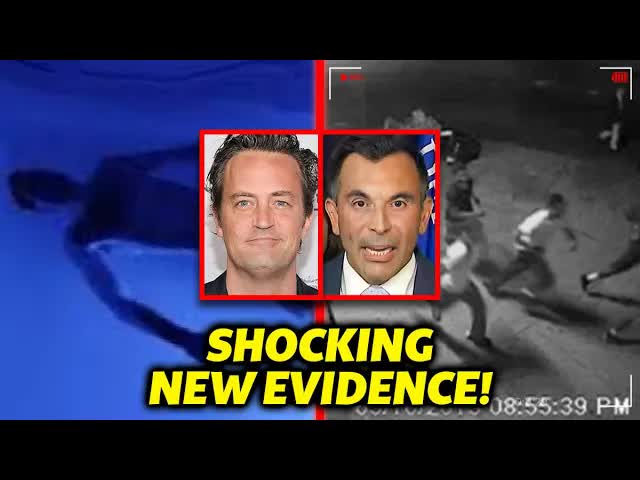The tragic passing of beloved actor Matthew Perry has sent shockwaves through Hollywood, and the investigation into his death has taken a startling turn.
Authorities are now unraveling a complex underground network allegedly involved in distributing ketamine to the star, raising questions about the darker realities lurking beneath the glamorous surface of Tinseltown.
Recent developments reveal that law enforcement has identified several individuals connected to Perry's untimely demise.
Among those implicated are his live-in assistant, two physicians, and a woman dubbed the “Ketamine Queen.”
The investigation has uncovered alarming details about how these individuals allegedly profited from Perry's struggles with addiction, leading to serious charges against them.
In a shocking twist, investigators seized electronic devices from a well-known celebrity's residence, indicating her potential involvement in the case.
Text messages have surfaced that suggest discussions regarding pricing for the illicit drug, further complicating the narrative surrounding Perry's death.
This ongoing investigation raises the question: was this merely a tragic accident, or is there something far more sinister at play?
Authorities have made multiple arrests as they delve deeper into the evidence.
Jasveen Sangha, the so-called Ketamine Queen, and Dr. Salvador Plasencia are at the center of this scandal, facing serious allegations including conspiracy to distribute ketamine and tampering with federal records.
Their operations reportedly involved a stash house in North Hollywood, where a significant cache of illegal drugs was discovered during a raid.
As the investigation unfolds, it appears that Perry's assistant, Kenneth Iwamasa, played a crucial role in the distribution of ketamine to the actor.
Reports indicate that between September 2023 and Perry's death on October 28, 2023, he facilitated the transfer of approximately 20 vials of the drug to the actor, amounting to a staggering $55,000.
The implications of these actions are profound, suggesting a calculated exploitation of Perry's vulnerabilities.
The circumstances surrounding Perry's death are equally troubling.
The Los Angeles County Medical Examiner's Office determined that he died from a lethal dose of ketamine, which led to severe cardiovascular issues and respiratory depression.
The concentration of the drug found in his system was alarmingly high, comparable to dosages used for general anesthesia.
This raises critical questions about the medical oversight—or lack thereof—surrounding his treatment.
Complicating matters further, the investigation has drawn in various agencies, including the DEA and the LAPD, as they seek to uncover the full extent of the criminal network involved.
The probe has revealed that the supply chain for the ketamine may have involved fraudulent activities, including potential mail fraud schemes, which complicate the narrative of how Perry obtained the drug.
The fallout from Perry's death has not only shaken the industry but has also brought to light the darker aspects of celebrity culture.
High-profile figures are scrambling to distance themselves from the scandal, while whispers of corruption and criminal activity permeate the air.
The investigation has even touched on other celebrities, including Brooke Mueller, Charlie Sheen's ex-wife, who has been questioned but maintains her innocence.
As the layers of this tragedy continue to unfold, one can't help but wonder whether this is just the tip of the iceberg.
The potential for further revelations looms large, suggesting that Hollywood's glamorous facade may be hiding a much more sinister reality.
With every new detail that emerges, the narrative grows murkier, leaving fans and the public grappling with unsettling questions about the true nature of the entertainment industry.
Perry, who was open about his struggles with addiction, sought to use his platform to raise awareness about the challenges faced by those dealing with substance abuse.
His death has sparked renewed conversations about the responsibilities of those within the industry and the potential consequences of enabling behaviors that can lead to tragedy.
As investigators work tirelessly to piece together the puzzle of Perry's death, one thing remains clear: the impact of this case will resonate far beyond Hollywood.
The revelations surrounding his passing could serve as a wake-up call for an industry often shrouded in secrecy and denial.
The ultimate question remains—will justice be served, and will the truth finally emerge from the shadows?































